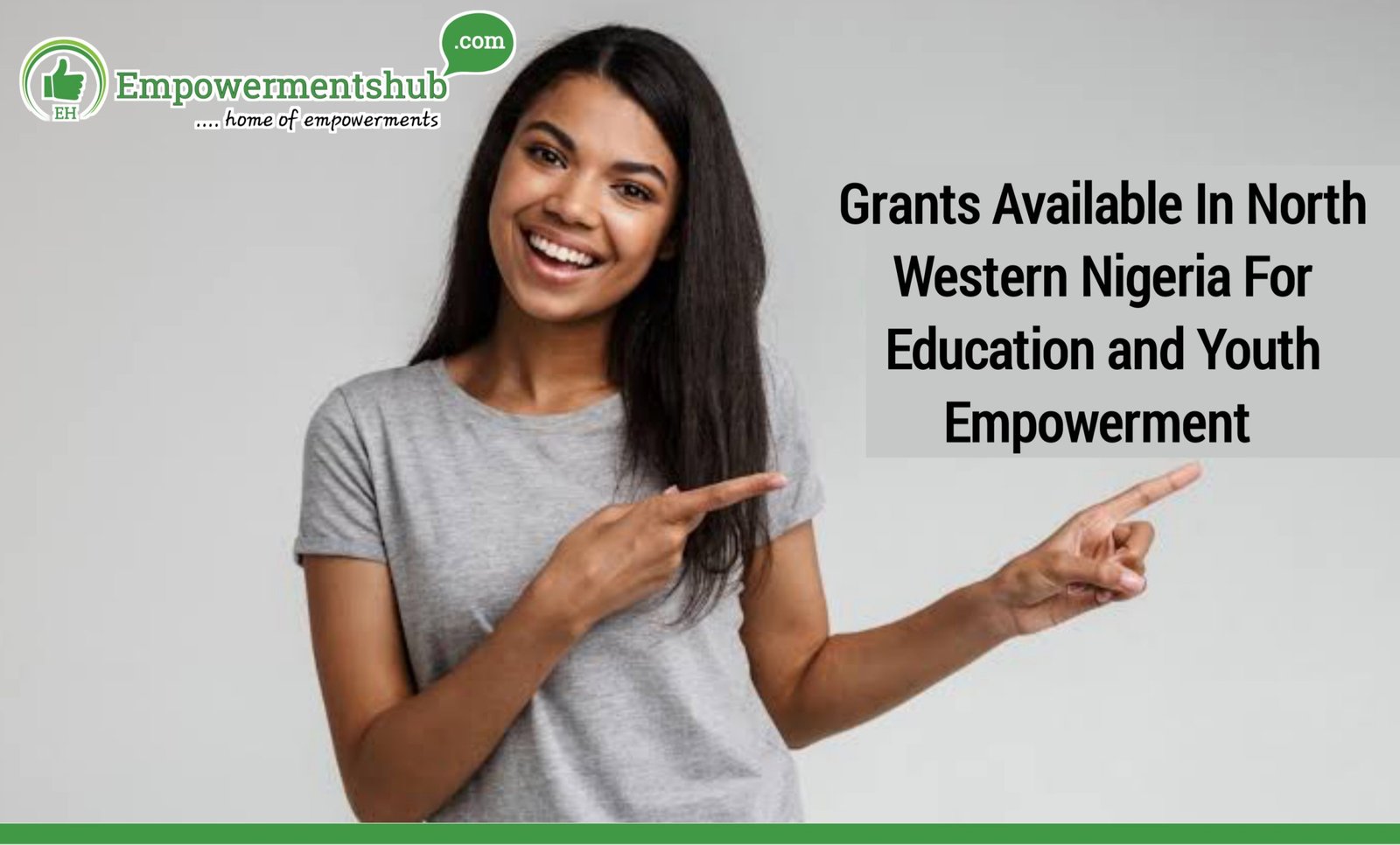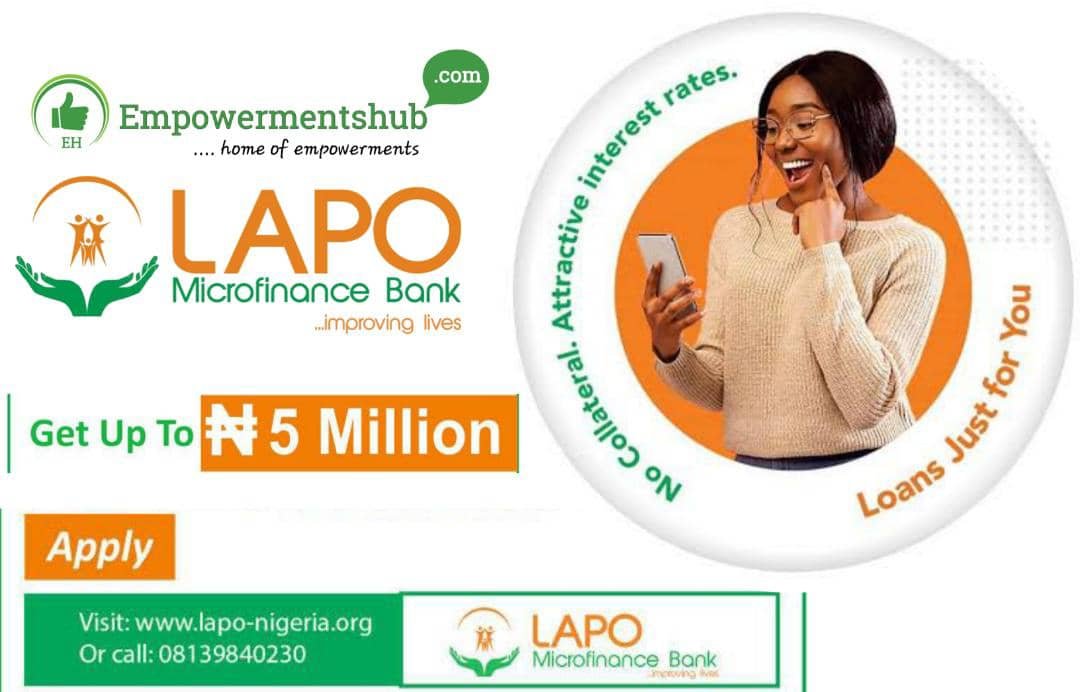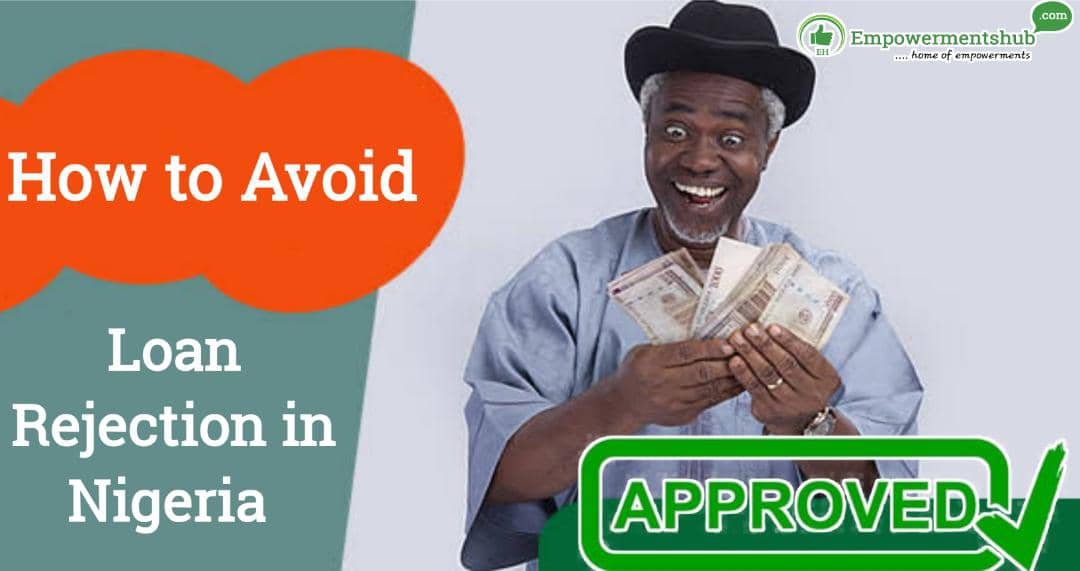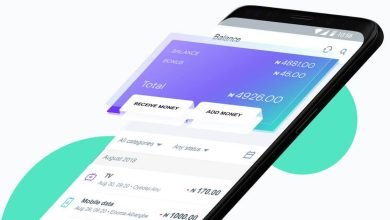Grants Available in North Western Nigeria for Education and Youth Empowerment

Are you looking for the Grants Available in North Western Nigeria for Education and Youth Empowerment? If you are a Nigerian youth, particularly from the north, then this article is for you. Do well to read it thoroughly and share with your friends.
The European Commission (EC) is looking for proposals to develop and deliver essential social and vocational skills to young people, including training for green occupations. This request for proposals will put a special emphasis on expanding access to high-quality, inclusive educational options for adolescents and young people, particularly through non-formal paths.

With a view to improving learning outcomes, it would concentrate particularly on engaging alternative educational pathways for out-of-school youth, including in vocational training and education in critical social lives and skills needed for green jobs, and it would target particularly female youth for skill acquisition to ease their entry into the labor market. By including features to create knowledge about climate change challenges and effective action, partnerships will be leveraged with improved private and public sectors commitment for life skills training.
Objectives
- The Education and Youth Empowerment in North-Western Nigeria is a fundamental and vocational education program designed to assist the Nigerian government in providing quality education and skill development that is inclusive and equitable, especially for girls in rural, underserved, and nomadic communities in the region. In support of Sokoto, Kano, and Jigawa, three northern states, this project will collaborate with the federal government on a nationwide scale.
- The overall goal of this request for proposals is to empower the most marginalized, underserved, and impoverished population groups, especially women and girls in the north-western part of Nigeria (Sokoto, Kano, and Jigawa).
Priorities
The priorities of this call for proposals are:
- Create initiatives to expand alternative/accelerated education programs and provide 500 000 young people with the opportunity to transition to formal or non-formal education in 60 schools/learning centers (20 in each of the states of Kano, Jigawa, and Sokoto);
- To create initiatives that will improve non-formal education, training, and skills for not less than 60 000 young people (60 percent females and 40 percent boys), with the goal of giving the target population options for work and a means of subsistence, including green jobs;
- To offer at least 150 places where girls and young women can feel safe, where they can learn important social life skills (such as financial literacy and livelihood skills) to help them transition into adulthood and get support for applying for green jobs;
- To launch at least 20 behavior change programs with a focus on girls’ empowerment and to build 12 pilots using cutting-edge media approaches.
- To enhance and integrate peace education and the avoidance of acts of violence into education for boys and girls.
RECOMMENDED: How to Apply for NESP Loan & Get ₦4.5m Grant www.boi.ng
Financial Details
- A total indicative sum of EUR 10,000,000 is made accessible under this request for proposals. The awarding authority retains the ability not to use every dollar that is available.
- The maximum grant amount that can be requested in response to this request for proposals is as follows.
- The most you can spend is €10,000,000.
Duration
An action’s initial planned duration cannot be less than 24 months or longer than 36 months.
Location
The states of Kano, Jigawa, and Sokoto in the Federal Republic of Nigeria.
Eligibility Criteria
Lead applicant(s)
The lead applicant must meet the following criteria in order to be considered for a grant:
- Be a natural person, a legal person, or an entity without legal personality;
- Be non-profit; Be a particular type of organization, such as a non-governmental organization, public sector operator, local authority, or an international (inter-governmental) organization as defined by Article 156 of the EU Financial Regulation; and
- Be directly responsible for the planning and management of the action.
- Not serving as a middleman and having at least two years of verifiable experience carrying out projects in specific priority areas of the request for proposals.
- Are not individuals or entities that can be excluded under certain circumstances.
- Must have extensive experience working at the local level and be employed at the state or federal level in Nigeria. In the absence of this, you’ll need a co-applicant with a lot of experience working at the grassroots who is employed by state or local government.
Co-applicant(s)
- Co-applicants take part in the planning and execution of the action, and they are just as entitled to reimbursement for expenses as the main applicant.
- Co-applicants must meet the same eligibility requirements as the lead applicant.
- The mandate form must be signed by all co-applicants.
- The co-applicant(s), if any, will become a beneficiary of the action (together with the coordinator), if the grant contract is approved.
- Please take note that contracts cannot be granted to or signed with applicants whose names are on the lists of restrictive measures from the EU.
Affiliated Entities
The lead applicant, along with any of its co-applicants, may work with related parties. The lead applicant and/or co-applicant(s) may only be deemed to be linked with the following organizations:
Only organizations have a structural connection to the applicants (the lead applicant or a co-applicant), particularly a financial or legal connection. Essentially, this structural relationship comprises two ideas: Control over certain categories of undertakings’ annual financial statements, consolidated financial statements, and related reports:
Therefore, entities connected to an application could be:
- Organizations that the applicant controls directly or indirectly (daughter firms or first-tier subsidiaries). They could also be entities under the management of an applicant-controlled entity (granddaughter businesses or second-tier subsidiaries), and this also holds true for additional levels of control;
- Organizations (parent firms) that directly or indirectly influence the applicant. They could also be companies that control a company that controls the applicant;
- Organizations that the applicant shares a direct or indirect control with (sister corporations).
- Membership, which means that the applicant belongs to the same organization (such as a network, federation, or association) as the proposed associated organizations or that the applicant is legally defined as belonging to that organization.
Deadline is 21st September, 2023.
Visit European Commission (EC) for additional details.



